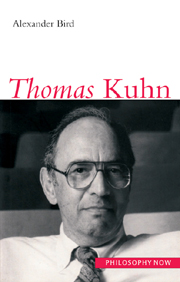4 - Perception and world change
Summary
Empiricism, perception and observation
In the last chapter we looked at Kuhn's notion of exemplar, which he employed in the explanation both of normal science and of perception. A scientific revolution requires the replacement of one exemplar by another. This is liable to involve, according to Kuhn, not only change in theoretical belief but also in perceptual experience. In this chapter I shall examine Kuhn's views on perception, most especially concerning the relationship between perception and theory. In the light of this I shall examine the well-known thesis that paradigm changes bring with them changes in the world
Kuhn's views on perception must be understood against the background of standard logical empiricist assumptions about perception, observation and their significance for science:
(i) the observational basis Judgment in science is founded on the observations we make (e.g. hypotheses are tested against observational evidence);
(ii) the experiential basis Observations are reports of perceptual experiences;
(iii) internalism The content of a perceptual experience is immediately knowable to its possessor – if one has an experience, one can know straightforwardly that one has it and what it is;
(iv) independence Perceptual experiences are raw data – they do not imply or depend upon any judgment or related mental state.
The empiricist account of observation seeks to ensure that observation is an epistemologically secure foundation for scientific inference, and in particular that observation provides a shared base for theory choice.
- Type
- Chapter
- Information
- Thomas Kuhn , pp. 97 - 148Publisher: Acumen PublishingPrint publication year: 2000



